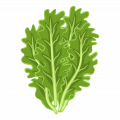Transitioning to a plant-based diet doesn’t have to be complicated or limiting. In fact, it opens up a world of exciting ingredients that you might not have used before. Whether you’re new to plant-based cooking or you’re looking to expand your pantry, there are a few key ingredients that should be staples in every plant-based kitchen.
1. Legumes (Beans, Lentils, and Chickpeas)
Legumes are the backbone of plant-based cooking. They are not only packed with protein, but also rich in fiber, vitamins, and minerals. Beans, lentils, and chickpeas are versatile ingredients that can be used in everything from soups and stews to salads, curries, and veggie burgers.
- Black beans and kidney beans are great for hearty dishes and chili.
- Chickpeas can be used in hummus, roasted for snacks, or tossed into salads.
- Lentils are fantastic for soups and curries, and they cook quickly.
These ingredients are inexpensive, shelf-stable, and incredibly nutritious, making them perfect for any plant-based meal.
2. Nuts and Seeds
Nuts and seeds are excellent sources of healthy fats, protein, and minerals. They add texture and flavor to dishes and can be used in a variety of ways. Some of the best options include:
- Almonds, cashews, and walnuts are great for snacking, adding to smoothies, or using in savory dishes like stir-fries and salads.
- Chia seeds, flaxseeds, and hemp seeds are rich in omega-3 fatty acids and fiber, making them ideal for adding to smoothies, oats, or baked goods.
- Nut butters (like almond butter or peanut butter) are also essential for making sauces, dressings, or adding creaminess to dishes.
These ingredients provide healthy fats that help keep you full, improve your skin, and support heart health.
3. Whole Grains
Whole grains are an essential part of a balanced plant-based diet. They are packed with fiber, protein, and essential nutrients. Incorporating a variety of whole grains into your diet can improve digestion and help regulate blood sugar levels.
- Brown rice, quinoa, and farro are hearty grains that pair well with vegetables, beans, and tofu for a balanced meal.
- Oats are a perfect breakfast option, whether in the form of oatmeal or overnight oats.
- Barley and millet are also excellent grains that work well in soups, salads, or side dishes.
By adding these grains to your meals, you’ll increase your nutrient intake and help keep you energized throughout the day.
4. Leafy Greens and Cruciferous Vegetables
No plant-based diet is complete without plenty of vegetables, especially leafy greens and cruciferous veggies. These nutrient-dense foods are low in calories and high in vitamins, minerals, and antioxidants that support overall health.
- Spinach, kale, collard greens, and arugula are excellent sources of iron, calcium, and vitamin K.
- Broccoli, cauliflower, and Brussels sprouts are packed with fiber, antioxidants, and cancer-fighting compounds.
These vegetables can be eaten raw in salads, added to smoothies, or sautéed and included in a variety of dishes.
5. Non-Dairy Milks
Plant-based milks have become a staple in many homes, replacing cow’s milk in everything from coffee and smoothies to baked goods. There are a wide variety of plant-based milks to choose from, each offering its own unique flavor and nutrients.
- Almond milk is light and versatile, perfect for coffee, cereals, and smoothies.
- Oat milk has a creamy texture, making it great for coffee, baking, and even savory dishes.
- Soy milk is the closest to cow’s milk in terms of protein content and is ideal for cooking or baking.
Non-dairy milks are a fantastic alternative for those avoiding dairy, and they come in a range of flavors, so there’s one for every palate.
6. Nutritional Yeast
Nutritional yeast is a must-have for anyone following a plant-based diet. It has a cheesy, nutty flavor that’s perfect for adding to pasta dishes, soups, or as a topping for popcorn. It’s also packed with B-vitamins and is often fortified with vitamin B12, which is important for those following a plant-based diet.
This ingredient is also incredibly versatile—it can be used to make dairy-free cheeses, sauces, and even sprinkled on roasted vegetables.
Conclusion
Stocking your kitchen with these plant-based staples will set you up for success in your culinary journey. Not only will they allow you to create a wide range of healthy and delicious dishes, but they’ll also support your overall health, energy levels, and well-being. As you explore plant-based cooking, you’ll discover endless ways to incorporate these ingredients into your meals, creating dishes that are both nutritious and satisfying.
By mastering these key ingredients and their uses, you’ll be able to confidently cook plant-based meals that delight your taste buds and nourish your body. At Vegan Cooking School, we’re excited to guide you on your journey to plant-based cooking success!

